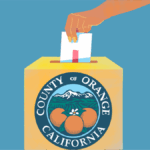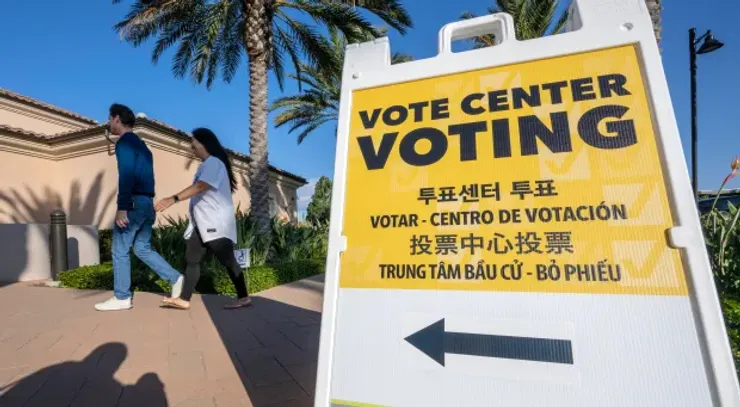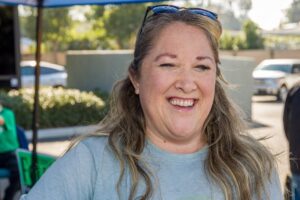Measure DD falls short as Santa Ana residents defend citizen-only voting rights.
Santa Ana voters have decisively rejected Measure DD, a proposed amendment that would have permitted noncitizens to vote in municipal elections. The measure, which drew sharp debate across the city, saw significant opposition, with 60% of voters siding against extending local voting rights to noncitizens.
In the lead-up to the election, yard signs and banners illustrated Santa Ana’s divide over the issue. While supporters displayed signs with “Strengthen Our Democracy,” opponents countered with “Defend Citizen’s Rights” banners around town.
Local resident Juan Molina, 61, voted against the measure, expressing his view that voting should remain a right exclusive to citizens. “It has to be a U.S. citizen,” he told the LA Times. “We all go through steps to become a U.S. citizen.”
Santa Ana, a majority-Latino city, leaned heavily Democratic in recent presidential races but appears to show a shift among Latino voters on immigration issues. Jon Gould, Dean of the School of Social Ecology at UC Irvine, noted that these results reflect a conservative shift within the Latino community on immigration policy. Mike Madrid, a Republican strategist with expertise in Latino voting trends, observed that many naturalized citizens respect the lengthy, legal process they underwent for citizenship and believe voting should reflect that commitment.
Measure DD’s rejection also came amid heightened national discourse around immigration, with Republicans criticizing the Biden-Harris administration’s handling of border security. Some GOP leaders warned about noncitizens affecting federal elections, a claim disputed by years of studies but resonant with many voters. Republican lawmakers attempted to pass a bill this year requiring proof of citizenship for voter registration, though it did not succeed nationally. However, similar measures passed in GOP-led states including Idaho, Kentucky, and North Carolina.
The federal government bans noncitizens from voting in national elections, but it leaves states free to set voting policies for local elections, and several cities across the U.S. have taken steps to allow limited noncitizen voting. In California, San Francisco and Oakland passed measures allowing noncitizens to vote in school board elections, though these laws faced legal challenges from conservative groups. Oakland’s measure, for example, has yet to be implemented.
Measure DD would have allowed noncitizens to participate in Santa Ana’s city council elections by 2028. However, critics argued that the measure would be expensive to implement, legally contentious, and an infringement on the rights of U.S. citizens. Conservative groups such as Policy Issues Institute led opposition efforts, framing the measure as an unnecessary expense that could complicate election logistics.
Carlos Perea, executive director of the Harbor Institute for Immigrant and Economic Justice, supported the measure and attributed its defeat to heightened anti-immigrant rhetoric. “In the backdrop, we had this growing anti-immigrant, nativist, fascist rhetoric rising in the country,” Perea said, emphasizing that advocates for the measure remain committed to pushing the issue in future elections.
While Santa Ana’s decision marks a setback for noncitizen voting rights in Southern California, Perea and others intend to bring the issue back to voters, drawing inspiration from previous measures passed in other California cities.
“We are ready to introduce this again in the near future,” Perea affirmed.















